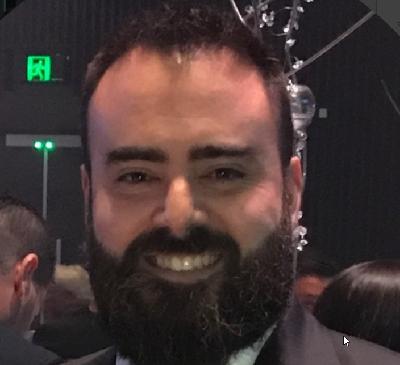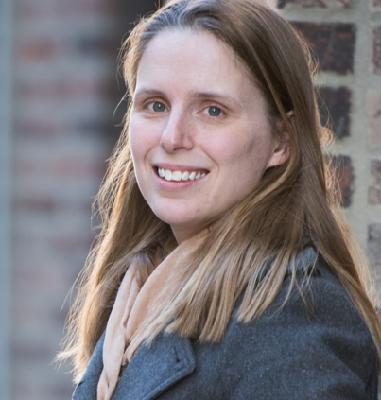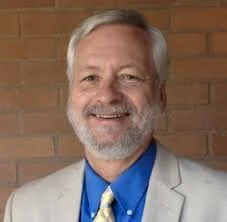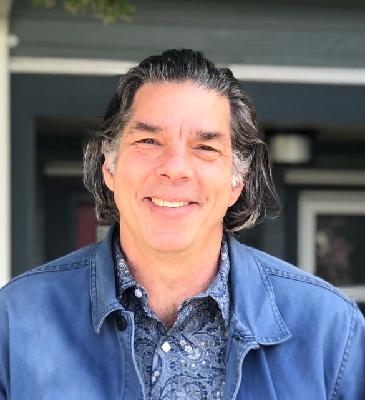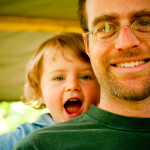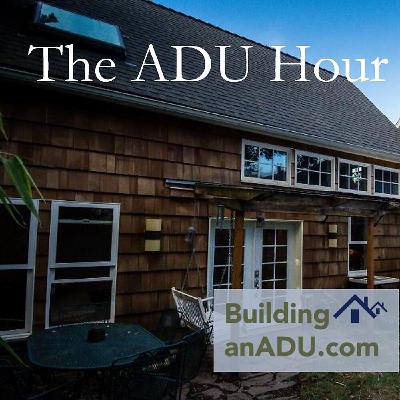The ADU Hour w/guest Alexis Stephens
Description
Alexis Stevens is the co-founder of tiny house expedition, the DIY tiny house, dweller and advocate. Along with our partner Christian Parsons, they inspire others to rethink housing through thought, provoking storytelling, educational events, and resource sharing.
Their work includes the acclaimed educational documentary [00:01:00 ] series. Living tiny legally. Living, tiny legally. It was featured on Washington post NPR business, insider parade magazine, curved entry, hugger. Cool. What were some of your takeaways from listening to this episode? Well, I'm in a real kick right now with mobile dwellings.
So it's really fun to banter with Alexis who is equally wonky about tiny house on wheels regulations. The tiniest moment is very fractured and stealthy by nature. So it's fun to try to anticipate how the stealthy movement will actually play out. In the future technology has enabled mobile dwellings, like RVs vans, tiny homes, and park model RVs to be far more convenient and practical than they would have been for living 20 years ago.
And I expect that we will look back almost consoling only to the days when tiny houses on wheels weren't even legal to live in, in residential zones. And think how weird it was that we didn't allow people to live in mobile dwellings.
Kelsey, what were some of your takeaways? Alexis is incredibly personable and we had a great time chatting with her.
She has traveled the country in search of knowledge [00:02:00 ] and experience of how tiny house communities are collecting and advocating to improve local regulations, to make this lifestyle more accessible.
Let's get to our interview with Alexis.
Kol Peterson: As, as Kelcy was introducing you, my Alexa device was responding and I was like,oh shoot, ,that's going to happen this whole episode -got unplug that. That that must be so annoying.
It is so annoying.
Alexis Stephens: We recently filmed in like three tiny houses with Alexas and they had to turn them off and yeah, it gets old and Alexa got creepy. I don't know if it was because I was there and she felt competition,
Kol Peterson: What a bummer, huh? [00:03:00 ] I mean, you can change for your own self. You can change the name of Alexa to somebody else, but like everybody else is still going to have the default Alexa. So it's going to pester you for the rest of your life.
Your bio was just read, but let's just hear a little bit about your personal endeavors with living in tiny homes. Some people have a little bit of context for your history, with the you know, living in one.
Alexis Stephens: Sure. Back in 2014 Christian and I ordered our, our trailer and built our tiny house over the next nine months.
And he was the main builder, but I helped, I learned a lot of new skills and we had a lot of great help for friends and family. And like so many people in tiny houses, we fell pretty hard down the rabbit hole. Before we decided to build and research like crazy for, you know, for personal choice to simplify.
It was a time in my life that where that just felt so right, [00:04:00 ] but I'm just an all or nothing person. And as I was researching, you know, I really fell in love with the movement and how creatively tiny homes are being used to address personal and community needs. And so I got the idea to travel around with our tiny house and document the movement.
And so I pitched Christian on both at the same time, I was like, let's build a house. Like I want to build a house and I have this documentary idea. Do you want to do it with me? Because we'd only been dating for a year at that time when I pitched it. Fortunately he was a really good sport and really loved the idea of it.
The rest is history. And after we finished our house at 2015, we ended up traveling for about four and a half years zigzagging across the United States, peaking into Canada. And it had just the most wonderful adventure. And most of that was around documenting as much as we could of the tiny house movement, the people, communities legal action that was happening.
And then of course we threw in some, some fun stuff [00:05:00 ] and some family visits, but I'm really happy to say that now we just traveled three months out of the year and have a home base in central Oregon.
Kol Peterson: Awesome. So this is not going to be so much focused on your personal experiences but rather the tiny house movement at large and specifically the regulatory things that are occurring in the U S so, and, you know, tying that into ADUs to some extent, but just more generally legalization of tiny homes on wheels.
We're going to talk about your specific documentary series on that later, but let's talk more about the nuts and bolts of it. So can you attempt to define tiny homes on wheels?
Alexis Stephens: Yeah, absolutely. You know, the term tiny house is a slippery one. That's for sure, especially in the media, but a tiny house on wheels, also known as a movable tiny house is built on a trailer using traditional housing materials and techniques for the most part, but at its core, it's a hybrid [00:06:00 ] structure that has a lot in common with like a travel trailer, as far as mobility, but with more durable materials construction, more kin to a traditional house than at RV, which makes it more suitable for a year round living, you know, think insulation, you know, is a big one.
The difference between an RV and a tiny house is night and day it's, it's a residential house versus a camper. It's, that's what we're talking about.
Kol Peterson: Would you say that there's a universally agreed upon definition of a tiny house on wheels in terms of size? Obviously it's on wheels. Aside from that, is there any other like core definitions that we should bear in mind or is it kind of all over the map?
Alexis Stephens: The term is, is still squishy, so to speak. And, but I will say that in tiny house, on wheels or movable tiny house zoning ordinances it is starting to get a little bit more formalized.
And in most of most of those you know, what I, a version of what I said and more formalized language [00:07:00 ] is, is becoming more widely accepted. Typically they'll say a chassis instead of a trailer. And, and in some areas, particularly California, they do like to distinguish a tiny house from an, a traditional RV, because, well, I'm sure we'll get into this word later.
They are trying to discourage, you know, RVs in backyards and, and want something that looks like a cottage that resembles an ADU.
Kol Peterson: So what roles do you see tiny homes on wheels playing in housing, a formal legal housing on residential properties?
Alexis Stephens: You know, I love a tiny house on a residential property because it's so, so flexible is great as a caretaker unit and not necessarily, you know, it could go either way. It could be like your mom, your mom, you know, comes to live in your backyard. Cause you've had a baby and she just can't stand to be away, but you maybe can't send, have her in the house.
You know, or vice versa where you, you or a [00:08:00 ] nurse comes and lives in a backyard in a temporary fashion to take care of someone. We just visited someone in Eldorado Hills, California doing just that. Her parents health is starting to wane and she lives on their property, but doesn't plan to be there forever.
So very, very flexible. Yeah. Besides this, the caretaking idea is just another housing option. A long-term more affordable housing option. That's very mutually beneficial for the homeowner and the tiny dweller. You know, I think sometimes people look down on tiny houses on wheels in this like temporary mobile fashion that they are as, you know, taking advantage not paying their fair share.
When in reality, the majority, I mean the majority of tiny houses in my personal experience on residential property are helping pay the mortgage, the property taxes. We just visited a great situation where a woman was divorced, a single income. [00:09:00 ] What is she going to do? Her whole life is there.
And so she welcomed a couple of tiny houses onto her property to pay her bills.
Kol Peterson:






